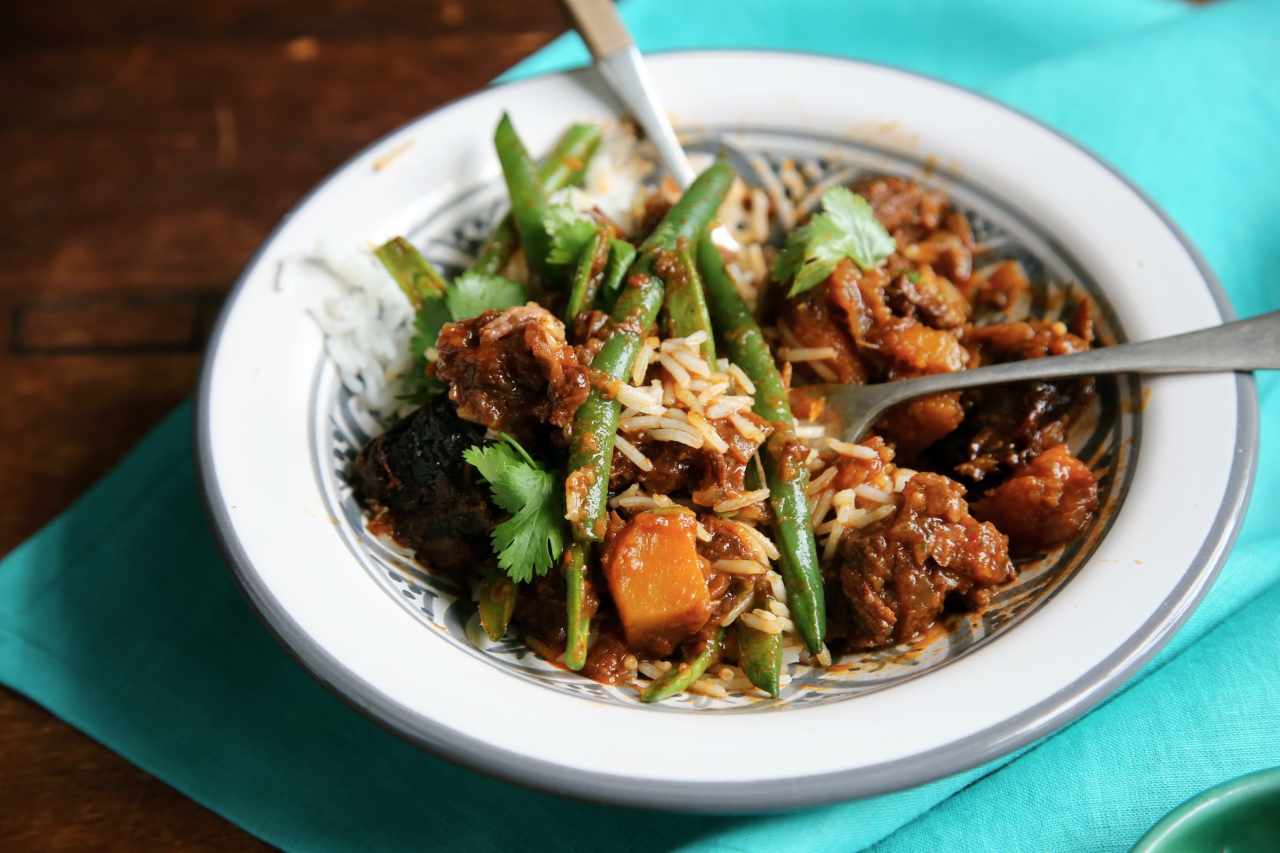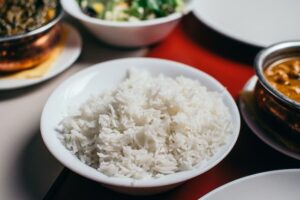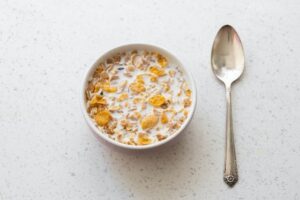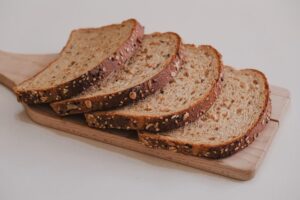Get In Touch
Info@fitfaysal.com

Trying to gain weight with Nigerian foods? This blog post is all you need!
It’s a pretty weird world, huh? Some of us gain weight as easily as inflating a ball, while others seem resistant to it.
There are several reasons for this, which I will elaborate on as you scroll.
Each side of the spectrum comes with its own benefits and downsides, but at the end of the day, we all want the same goals: to look good and feel healthy.
So, my fellow Nigerian ladies and gents, stay tuned for the 21 foods you can find in Nigeria for healthy weight gain.
But first, there are some things you should know. Take your time with this post; this 10-minute read may solve your weight gain solution for life!
High-calorie foods are foods that contain high amounts of energy that your body stores from food.
You should note that while high-calorie foods are essential for weight gain, the quality of those calories still matters.
You should eat high-calorie, healthy foods that contain refined carbs, protein, and healthy fats.
Let’s break down how each of these nutrients helps with weight gain.
You want to eat foods high in carbs when trying to lose weight because they digest quickly in the body, which makes you feel hungry sooner for your next meal.
Starchy carbs are also usually calorie-dense.
Protein is a double-sided nutrient because it can also help you lose weight.
But it helps you gain weight in a very good way.
It helps you add body mass, and mixed with strength training, most of the protein foods you eat convert to muscle, leaving you looking fuller and heavier.
Foods high in healthy fats are also usually high in calories.
These foods also contain nutrients that can aid you throughout your weight gain journey.
Before jumping straight into the diet aspect, you should know the possible reasons hindering your weight gain.
Consider factors such as:
Genetics plays a huge role in determining your body type and metabolism.
Some individuals, such as ectomorphs, naturally have a slender build, and despite efforts, they struggle to gain weight.
People with a naturally high metabolism burn calories quickly.
Burning calories quickly means your body doesn’t store them, which can make it challenging to gain weight.
Some of you are just not eating enough. Not consuming enough calories to meet your body’s energy needs is a primary reason for being underweight.
If you think you’re eating too much and still not gaining weight, double or even triple the amount.
Unintentional weight loss or trouble gaining weight can result from specific medical issues.
These may include chronic infections, hyperthyroidism, diabetes, and gastrointestinal conditions (such as celiac disease or irritable bowel syndrome).
Conditions like depression, anxiety, or eating disorders, can affect appetite and eating habits, resulting in being underweight.
Unhealthy eating habits, such as skipping meals or avoiding certain food groups, can contribute to difficulty gaining weight.
Being skinny doesn’t always equate to being underweight.
Before diving into the delicious world of high-calorie Nigerian foods, assessing whether you need to gain weight is important.
Consider these factors:
Start by calculating your BMI, which takes into account your weight and height.
This helps you know if you’re at a healthy weight.
Are you trying to put on weight for health reasons, athletic performance, or simply to feel better about your appearance?
Understanding your motivation can help you tailor your approach.
Consult a healthcare professional or a registered dietitian if you believe you are underweight for medical or other extreme reasons.
They can provide personalized guidance based on your unique circumstances.

Aside from your weight-gain meal plan, here are some tips to boost your weight gain efforts.
After calculating your maintenance calorie intake, add between 500 and 1000 extra calories, depending on how you want to lose weight.
Now, track your calorie intake to ensure you’re on track.
Have a calorie-rich snack before going to bed.
This provides your body with sustained energy during sleep.
Aside from solid foods, add liquid calories such as milk, shakes, and smoothies.
The calories in these add up surprisingly pretty quickly.
Start doing more strength training! This will help convert extra calories into muscle mass rather than fat.
Which is what you want, right?
Slow your horses. If you’re excited because you think you can eat all the junk food you want, I’m sorry to break it to you.
Sure, you need high-calorie foods, but most of the junk, unhealthy foods don’t contain essential nutrients.
They contain empty calories that add mostly fat to your body. If you go this route, you may not like how you look when you add that weight.
You still need to eat healthy; this is why I will cover foods that are calorie-dense, high in carbs, protein, and healthy fats.
These foods will help you add weight the right way.
Let’s dive in! Finally, right?

Rice, the food people trying to lose weight tend to avoid, doesn’t contain a great number of calories but is rich in carbohydrates.
Why is this important? Rice digests quickly in the body because of its high carbohydrate content.
This means you get hungry quicker, leading to more food consumption and, thus, weight gain.
Beef, goat meat, and other red meats are excellent sources of protein and fats, along with essential nutrients like iron and B vitamins, that can help you gain weight and mass.
Creamy and calorie-rich, avocados are packed with healthy fats and various vitamins and minerals that give you the nutrients your body needs when gaining weight.

Fortified cereals portrayed as nutritious are also a calorie-rich breakfast option, offering high amounts of carbs. This explains why you keep reaching for another bowl.
Protein shakes are convenient liquid calories that boost your calorie and protein intake, especially after workouts and in between meals.
Here are some good options:
2 medium bananas, 3 dates, 100 ml milk, and 2 tbsp peanut butter.
3 tbsp cocoa powder, 100 ml Greek yogurt, 2 medium bananas, 2 tbsp honey, 150 ml milk, and 2 tbsp peanut butter.

Calorie-dense and versatile for cooking, regular and peanut butter adds richness to meals, and weight to your body.
They contain enough protein and fats, ideal for people who want to gain weight fast.
Continue enjoying these spreads on your favorite bread to spike your calorie intake.
Whole milk is high in calories, protein, and calcium, promoting healthy weight gain.
You should consider it your healthy liquid calorie friend during a weight gain diet.
Take tiger nut or almond milk if you’re lactose intolerant.

A healthier alternative to white bread, it provides carbohydrates that are digested in the body quickly, leaving you ready and hungry for the next meal.
Garri, one of our Nigerian food saviors made from cassava is calorie-dense and high in carbohydrates, making it a great option to add to your weight gain healthy diet.
Olive oil contains healthy fats and calories and can be used for cooking or drizzling over dishes and salads to raise calorie value.

Dense in calories and carbs, dried fruits like dates and raisins are nutritious snacks.
Dry fruits are a better option for weight gain because of the volume you can eat without getting full.
These Nigerian swallow foods are high in calories and carbs on their own, but when consumed along with Nigerian soups, they become a calorie powerhouse to gain more weight.
Our Nigerian soups are calorie-dense and packed with nutrients.
They create a satisfying and energy-rich meal when served with your favorite swallows.
Nothing is better than a plate of hot yam and egg in the morning. If you’re trying to add weight, then you’re in luck; you can have as much as you want!
This starchy root vegetable is a good source of carbohydrates and packs a punch of calories. The average serving of yam is between 400-600g, that’s over 1000 calories in one meal.
Full-fat yogurt is a nutritious dairy option that is medium in calories and high in protein.
Add nuts and dried fruits to it to boost its calorie value.

Almonds, cashews, and peanuts are calorie-dense snacks with healthy fats and protein.
They can be consumed at high volume while still giving room for more food.
Cheddar cheese is a calorie-rich dairy product, offering high amounts of protein and calcium.
Cheese contains saturated fats and cholesterol, so should be eaten in moderation.
Sauces like mayo and salad dressings can enhance your meals’ taste and calorie content.
A tablespoon of these can contain 50-100 calories making them high calorie.

Ripe plantains or dodo are a calorie-rich component of our Nigerian cuisine.
These golden fruits are an excellent choice for those looking to gain healthy weight with a taste of natural sweetness.
Besides their calorie content, ripe plantains are rich in essential nutrients, including dietary fiber, vitamins like vitamin A and vitamin C, and minerals such as potassium.
Mass gainers are specifically designed to promote weight gain and muscle growth.
Depending on the brand and preparation, they can provide several hundred calories per serving.
Add milk instead of water to boost the calories even more!
High-calorie snacks like bananas, Akara (bean ball), plantain chips, rolls, chin-chin, and shawarma offer convenient calorie sources for snacking between meals.
There you have it! the high-calorie, healthy Nigerian foods for weight gain.
Foods that help you gain more weight are usually high in carbs and fats.
It’s essential to understand the factors behind being underweight, from genetics to your metabolism rate.
To determine if you truly need to gain weight, calculate your BMI and consider your motivation.
Boosting weight gain can be achieved by adding and tracking calories, snacking before bedtime, including liquid calories like milk and shakes, and engaging in strength training.
We covered high-calorie foods for weight gain in Nigeria such as rice, red meats, avocados, and dairy products, providing a balanced approach to adding weight the right way.
I hope you got value from this post!